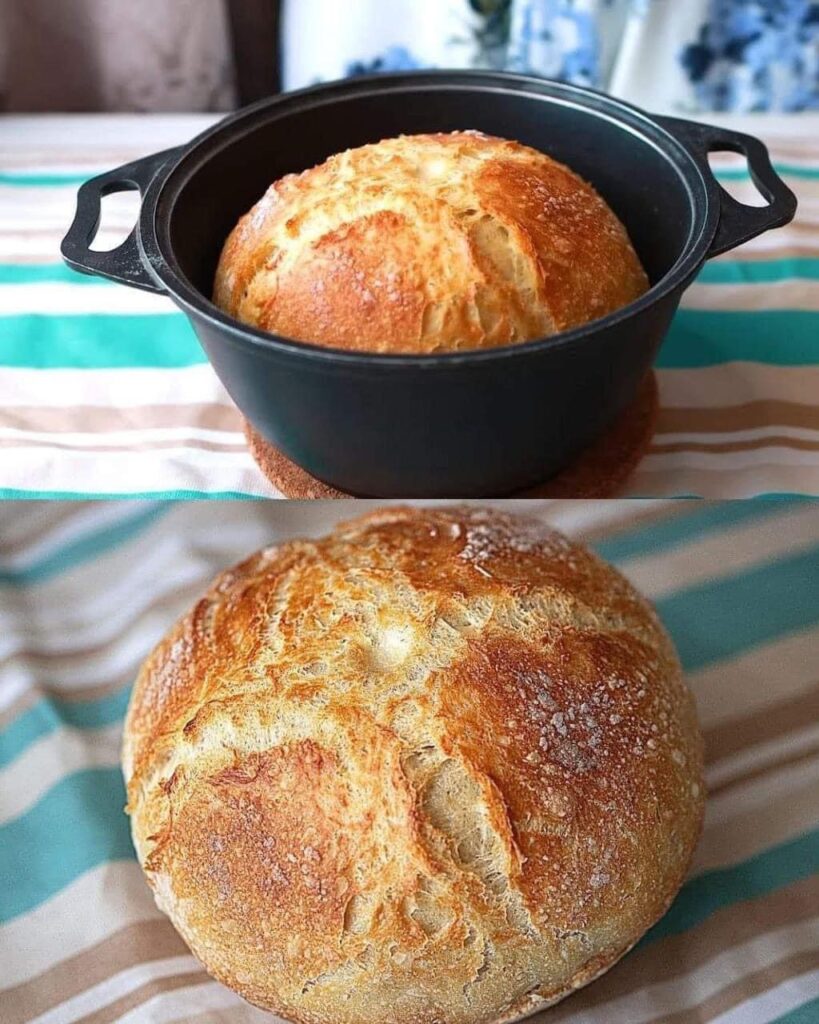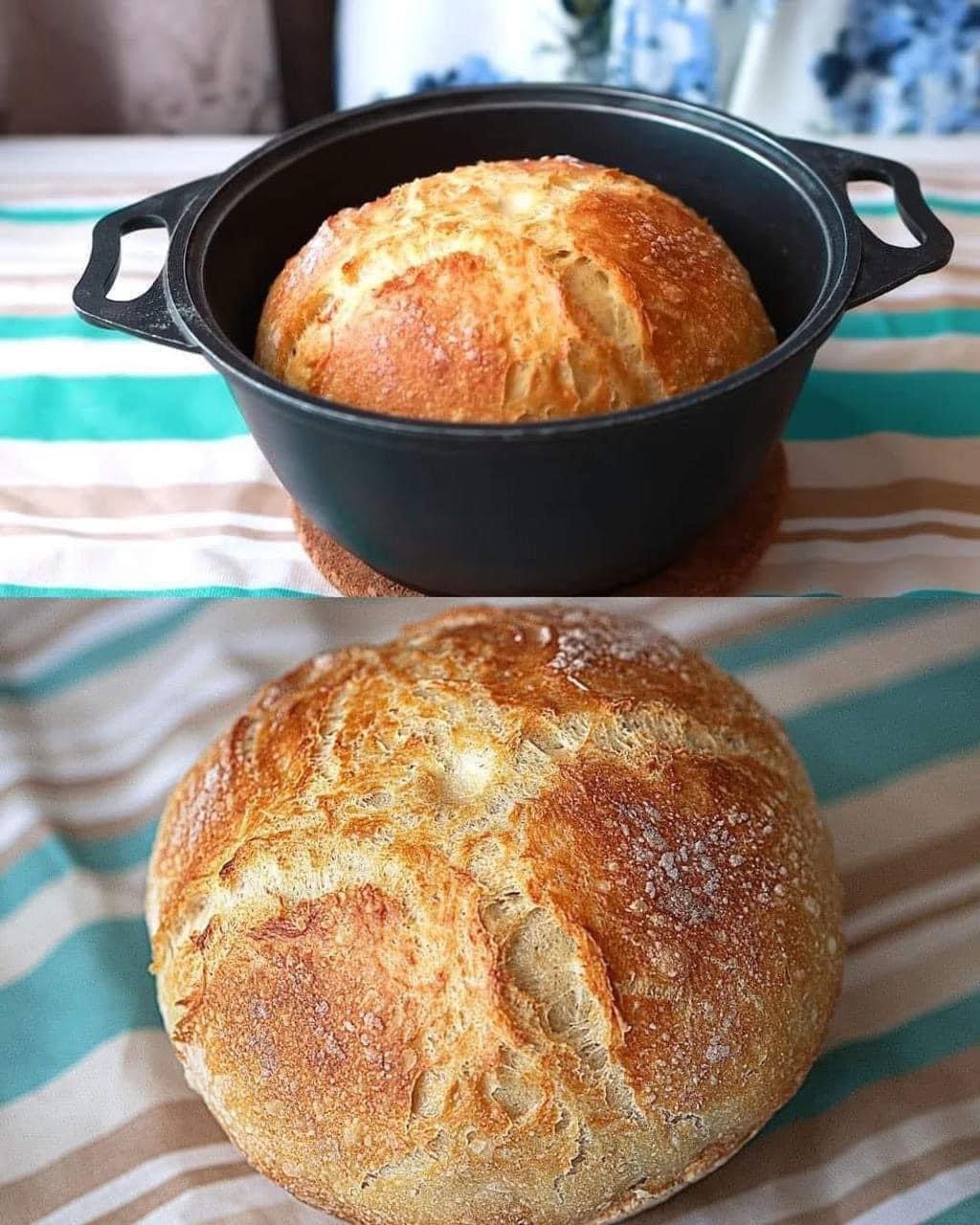Artisan Dutch Oven Bread

Introduction
There’s something magical about the aroma of freshly baked bread wafting through your kitchen. Dutch oven bread is the perfect balance of simplicity and sophistication—a no-knead recipe that yields a beautifully crusty, golden loaf with a tender, chewy interior. This bread has captivated bakers for generations due to its rustic charm and versatility, and it’s bound to win your heart too
History
Bread-making is as ancient as human civilization, dating back over 10,000 years. Dutch ovens, originally called “braadpans,” were first used in the Netherlands and later popularized in England and America in the 17th century. The Dutch oven’s heavy cast-iron construction made it ideal for baking artisan breads that mimic professional steam ovens, ensuring perfect crust and texture
Ingredients
3 cups (360 g) all-purpose flour
1 ½ teaspoons salt
1 teaspoon instant yeast
1 ½ cups (360 ml) warm water
Additional flour for dusting
Instructions
Mixing the Dough
In a large mixing bowl, combine the flour, salt, and yeast. Gradually add warm water and stir with a wooden spoon or spatula until you have a shaggy, sticky dough.
First Rise
Cover the bowl with plastic wrap or a clean kitchen towel and let the dough rise at room temperature for 12-18 hours, or until it has doubled in size and appears bubbly.
Shaping the Dough
Lightly flour a clean surface and turn the dough out. Sprinkle flour over the top and gently fold the dough into a ball. Avoid overhandling it to retain the airy texture.
Second Rise
Place the dough on parchment paper and cover it loosely with a towel. Let it rise for 30-60 minutes while preheating your oven to 450°F (230°C) with the Dutch oven inside.
Baking the Bread
Carefully remove the Dutch oven (it will be extremely hot). Use the parchment paper to transfer the dough into the pot. Cover with the lid and bake for 30 minutes. Remove the lid and bake for another 10-15 minutes to develop a golden crust.
Cooling
Remove the bread and let it cool on a wire rack for at least 30 minutes before slicing
Benefits
Homemade Goodness: No preservatives or additives—just pure, wholesome bread.
Budget-Friendly: Costs a fraction of store-bought artisan bread.
Nutritional Value: Rich in carbohydrates for energy, and fiber when made with whole-grain flour.
Mindful Living: The slow process of bread-making fosters patience and mindfulness.
Formation
The bread’s formation relies on long fermentation. The slow rise allows yeast to develop gluten naturally, creating the perfect crumb structure. Baking in a Dutch oven traps steam, ensuring an airy interior and crackly crust.
Nutrition (per slice, approx. 50g)
Calories: 120
Carbohydrates: 25g
Protein: 4g
Fat: 0.5g
Fiber: 1g
Sodium: 250mg
For Bread Lovers
This bread is perfect for dipping into olive oil and balsamic vinegar, pairing with soups, or crafting into sandwiches. It’s loved by bakers of all skill levels for its ease and by eaters for its unbeatable flavor.
Conclusion
Baking Dutch oven bread is a fulfilling journey that connects us to ancient culinary traditions while filling our homes with warmth and aroma. Whether you’re a seasoned baker or a beginner, this bread promises satisfaction in every bite. Embrace the art of slow baking and fall in love with the simplicity of bread-making.
Enjoy your rustic loaf and share the love of homemade bread with your family and friends
